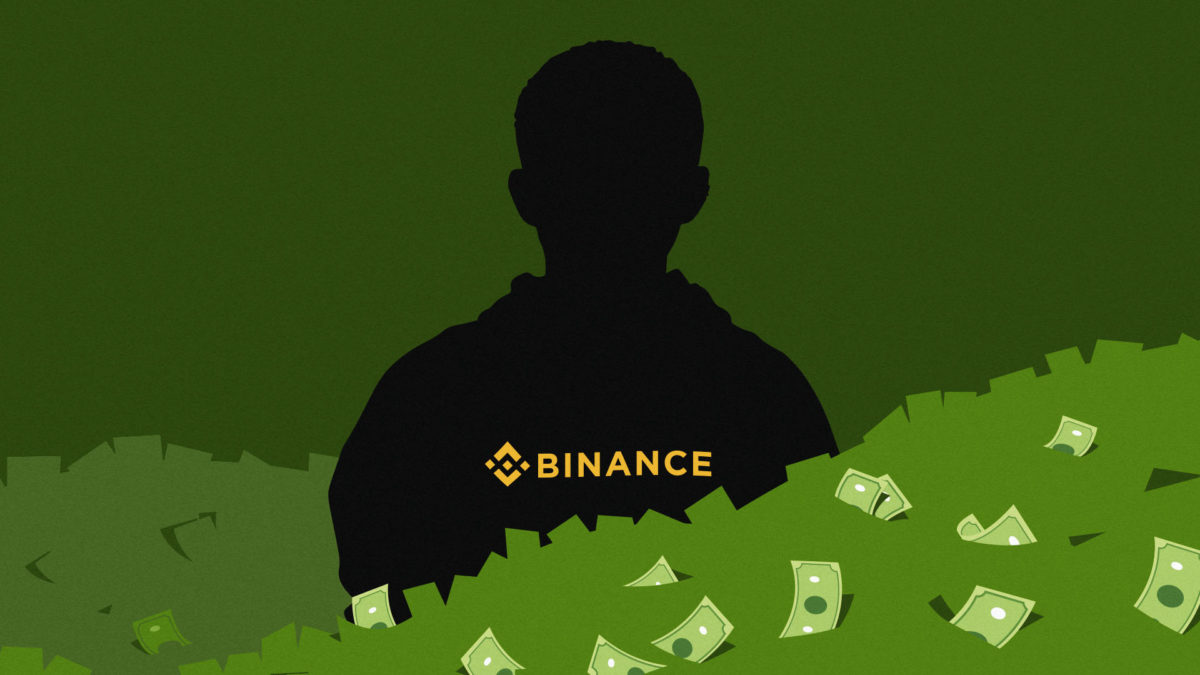McDonald’s to crypto billionaire: Binance chief enters world’s top 20 richest

Binance chief exec Changpeng Zhao is one of the world’s wealthiest people, Bloomberg reports, with an estimated net worth of $96 billion.
If that figure is correct, Zhao has catapulted into the top 20 richest people in the world just four years after founding his crypto exchange.
Bloomberg ranked Zhao ahead of business magnate Mukesh Ambani, making him the richest person in Asia.
As is typical for prominent players in the crypto community, no one knows how much crypto Zhao personally holds. Bloomberg didn’t value his digital asset portfolio.
Still, Zhao has reiterated that his three most significant personal asset holdings are Binance equity, Bitcoin (BTC), and Binance Coin (BNB).
Bloomberg calculated that Binance generated $20 billion in revenue in 2021. That’s triple the revenue of its largest competitor, Coinbase.
Coinbase has a market capitalization of about $50 billion while Binance is not publicly traded.
Last November, Binance insiders reportedly valued the exchange as high as $300 billion, which would’ve put it on par with Netflix and Disney.
Binance chief Changpeng Zhao’s crypto career
Bloomberg acknowledged Zhao’s humble beginnings as a McDonald’s worker and entry-level software developer.
Zhao says his family moved from China to Canada after the Chinese government derided his father as a “pro-bourgeois intellect.”
While growing up in Canada, Zhao worked at various service jobs, but would later major in computer science at McGill University in Montreal, Quebec.
His post-college career included an internship for a contractor who developed matching engine software for the Tokyo Stock Exchange and developed futures trading software for Bloomberg’s Tradebook.
In 2005, Zhao moved to Shanghai. Early entrepreneurship efforts there included founding a high-frequently trading platform called Fusion Systems.
In 2013, he joined Blockchain.info’s wallet development team.
From June 2014 to February 2015, Zhao served as Chinese exchange OKCoin’s Chief Technology Officer. He launched its futures trading platform in August 2014.
Zhao parted ways with OKCoin in February 2015 in what the exchange described as a “verbal agreement” and not a formal resignation.
In October 2017, OKCoin fully merged with the ostensibly Seychelles-based OKEx. China was increasing scrutiny of crypto exchanges at the time, and OKCoin generated most of its revenue from China.
OKEx remains one of the world’s 10 largest crypto exchanges.
CZ founded Binance in 2017, initially headquartered in China. He quickly moved Binance’s servers and headquarters to Tokyo, Japan, due to another Chinese ban on crypto trading later that year.
Binance is currently registered in the Cayman Islands. It’s unclear exactly where Binance servers are located, while the company claims to have no official headquarters.
Binance scrubbed BNB ties to corporate profits
Zhao would never boast his current wealth had it not been for Binance’s initial coin offering (ICO) for its native utility token BNB.
Indeed, Zhao’s ICO raised about $15 million — precious capital that he parlayed into his growing empire at Binance.
Binance promised in BNB’s original whitepaper to use at least 20% of its profits to regularly “burn” (buy back) BNB.
In 2017 and 2018, Binance used corporate operating profits to buy back hundreds of millions of dollars worth of BNB.
However, amid questions about the security-like characteristics of BNB, Binance eliminated that pledge to use profits to burn BNB from its whitepaper in 2019.
Binance has consistently denied that BNB was a security at the time of the sale, despite its initial promise to reward token holders directly from the proceeds of corporate profitability.
It also does not disclose how many US residents own BNB.
To contextualize a possible percentage of US participation in Binance’s ICO, researchers have considered the somewhat then-similarly-sized company, Telegram.
Telegram conducted an ICO for its TON token on Japanese exchange Liquid. Despite repeated assurances from Telegram that US investors were not welcome to participate in its offshore ICO, in reality, US residents purchased one-quarter of the sale supply.
The US Securities and Exchange Commission (SEC) revealed this figure when it brought a lawsuit against Telegram for allegedly selling unregistered securities to US residents.
A judge quickly ruled that the SEC had a high chance of proving that Telegram planned to distribute securities that did not qualify for exemption. Telegram soon agreed to repay $1.2 billion to its investors in one of the largest monetary settlements in SEC history.
But comparing BNB to TON is inadequate; the percentage of US investment could be dramatically higher or lower. Each ICO is unique.
To this day, no one except Binance insiders like Zhao know how many US investors participated in the BNB ICO under its original promise to use corporate profits to reward token holders.
Binance US dwarfed by its global platform
Unlike Telegram, Binance’s chief may have played it safer with American regulators. In 2019, Binance.com (the company’s flagship exchange) suspended service to most US customers.
Instead, CZ’s majority-owned Binance.US serves Americans via a website, matching engine, and wallet technologies built by Binance. It lists significantly fewer cryptocurrencies and doesn’t support margin trading or futures markets.
Binance.US reported about $520 million in daily transactions on Monday, an inconsequential 3% of Binance.com’s $18.6 billion daily volume.
In any case, regulatory hurdles continue to be Binance’s main challenges The US Department of Justice and Internal Revenue Service are investigating Binance Holdings for possible violations of the Bank Secrecy Act.
Read more: [Binance staff exploited users’ crypto trades for personal gain, whistleblower]
Binance is also under criminal and civil investigation in jurisdictions across the world.
As for how Zhao feels about his sudden prominence in Bloomberg’s billionaire leaderboard, the entrepreneur issued a statement (via Binance):
“Crypto is still in its growth stage. It is susceptible to higher levels of volatility. Any number you hear one day will be different from a number you hear the next day,” it read.
Follow us on Twitter for more informed crypto news.
